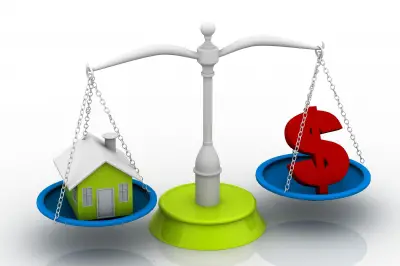For many people, the purchase of a home may represent the biggest single purchase in their entire life. In most cases, people don’t have the personal resources to buy a house outright, so they will have to finance most of the cost with a conventional mortgage. Typically, this will last from 15 to 30 years, and the monthly repayments will represent a sizeable part of the household budget, so it’s not surprising that people often look for ways to reduce this liability. In many cases, it may be possible to do this without penalty, so if you’re in this situation, what do you need to think about as you try to reduce your mortgage?
Check for a Prepayment Penalty
There are many different types of mortgage products on the market, and this is a very competitive environment. Lenders will try to attract you to their product with special introductory rates, and you should check the fine print before you take any action. Some lenders may position their products so that they earn most of their revenue in the future. In this case, you will be taking advantage of better monthly repayments due to lower interest rates, and they may introduce a penalty if you are to try to repay your mortgage early. According to Nolo Press, “For many new mortgages, the lender cannot charge a prepayment penalty—a charge for paying off your mortgage early. If your lender can charge a prepayment penalty, it can only do so for the first three years of your loan and the amount of the penalty is capped. These protections come thanks to federal law.”
Beware of Adjustable or Variable Rates
Mortgage lenders will often entice you with a lower rate to start and then gradually raise that rate as the mortgage progresses. These are called “variable-rate mortgages” or “Adjustable-Rate Mortgages” aka ARMs and can cause problems if you can barely afford the initial rate. If your wages increase over time you might be able to cover the increase in the mortgage payment but if an unexpected downturn in the economy occurs and interest rates rise it could cause you to lose your house. If you don’t plan on staying in your house for the long term, a variable mortgage might save you money. But if you plan on staying more than about 5 years locking in a fixed-rate mortgage might be safer.
Mortgage Reduction
If there is no prepayment penalty, you may be able to save a lot of money by adding a certain amount to your mortgage payment each month. You will be able to bring the principal sum down as you do so, and, due to the way that compounding works, you can save a great deal of money on interest payments. Just be sure to have that money applied to the principal and not just to the next month’s payment.
Rainy Day Fund
Make sure that you look at this very carefully and figure out if you can afford to pay that extra monthly amount without causing any issues elsewhere. Remember that you should always have a rainy day fund just in case, and you should also have a look at any high-interest credit card accounts too. It may be better for you to pay some of those down first before allocating that additional money towards mortgage reduction.
Talk with a financial adviser if you are unsure how you should proceed.
You might also like:
- How Pro Homeowners Pay off Their Mortgage Faster Than Their Neighbors
- Accelerated Payment Mortgage calculator
- 3 Tips for Saving Money on Your First Mortgage
- Your Guide to Home Loan Refinancing
- Mortgage Jargon
- Financial Jargon – Investment Terminology for Beginners
- 5 Good Reasons To Get Title Insurance
- Rebuilding and Fixing Your Credit in 5 Steps
- Financial Figures: How to Budget for a Mortgage
- Home Buying 101: 4 Signs to Look for When Choosing a Mortgage Lender


